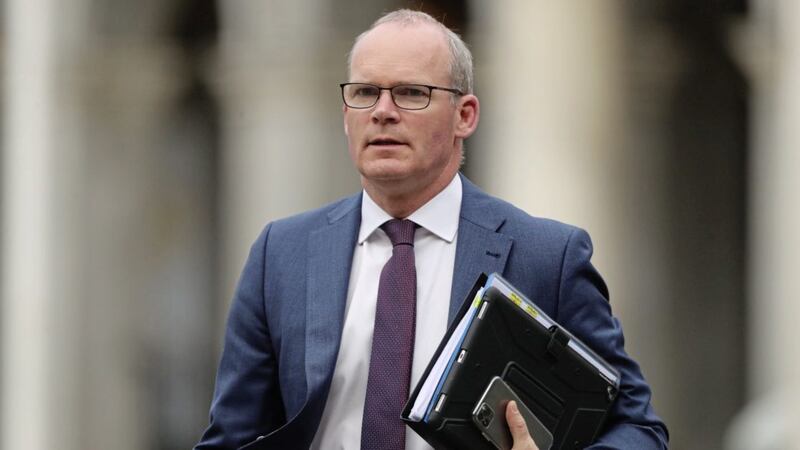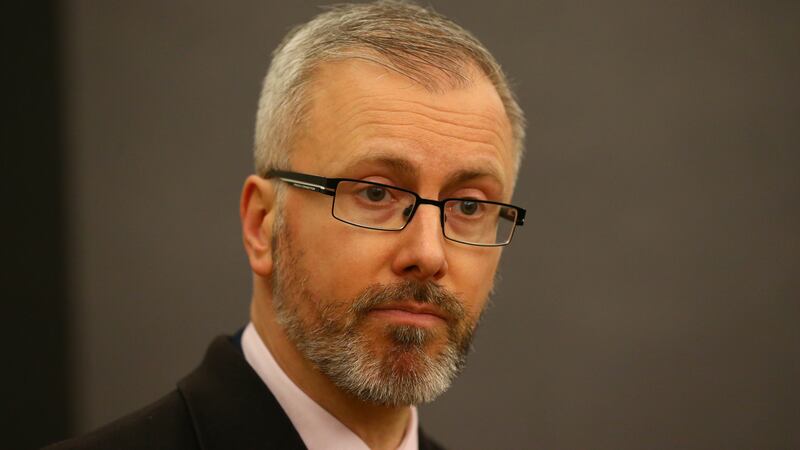Foreign affairs minister Simon Coveney has said there was hurt among minority communities on both sides of the border following partition.
Simon Coveney was speaking during an event in Belfast organised by the Presbyterian Church to mark the centenary of Northern Ireland.
He described the centenaries of the events which led to the partition of Ireland and the foundation of Northern Ireland as “particularly sensitive” and “hotly contested”.
“We have to acknowledge and make space for multiple perspectives including, of course, those from the unionist community who take great pride in Northern Ireland’s existence and achievements, for those of a nationalist tradition for whom partition was a profound loss and who experienced serious alienation under the parliament formed in 1921,” he said.
“And also perhaps not spoken enough of, for southern unionists whose way of life, culture and political aspirations were also forever impacted by partition.
“I think that it’s important I too acknowledge the hurt experienced by minority communities on both sides of the border.
“This period was a period of violence and displacement and suffering, and it was not confined to one community on either side of the border.
“I think any tradition or community who look back honestly over the last hundred years will see many ways and times that we have fallen far short of the principles that we set for ourselves.”
Scores of people crossed the border following partition, including those from a pro-British perspective to Northern Ireland, while some nationalists moved to the newly formed Irish Free State.
First Minister Paul Givan said his family can be traced back to Ballybay in Co Monaghan but moved north after partition.
“I wouldn’t use the phrase quit Ireland, they didn’t want to quit Ireland, but they moved across the border into south Tyrone like many thousands of other unionist and protestant people and they made Northern Ireland their home,” he said.
Mr Givan said people are “more complicated than the stereotypical view”, describing values as transcending across the UK and Ireland.
He said Northern Ireland was a “very different place to where we were 100 years ago”, from the economy, to building better relationships within Northern Ireland and welcoming others, including 2,000 Syrian refugees recently, as well as to those fleeing Afghanistan.
Sinn Féin junior minister Declan Kearney said Ireland's relationship with Britain over the last 100 years was "characterised by colonialism, partition and political division".
He said there is nothing for republicans and nationalists to celebrate when it comes to the partition of Ireland.
"Irish nationalism and republicanism have our own perspectives and experiences of partition. The fact is that discrimination, state repression, were the lived experience for successive generations," he said.
"I recognise that unionists have a separate narrative, theirs was a different experience, but the political and the social and cultural consequences of what happened during the decade from 1912-22 continue to reverberate until today.
"In more contemporary times, our peace process and the Good Friday Agreement have thankfully created an alternative to the experience of conflict."
He said he was sorry as a republican leader that "a lot of hurt and pain has been caused by us all to each other throughout the last century of conflict".
"We can all see things now which we would wish had been done differently or not at all, so it's surely time for us all to acknowledge our shared suffering, which we are unionist and republican, as Planter and Gael, and as British and Irish have endured," he said.
"It is time to heal those wounds of the past in order to move forward together, and it is my conviction that Irish reunification and reconciliation are inseparable."


